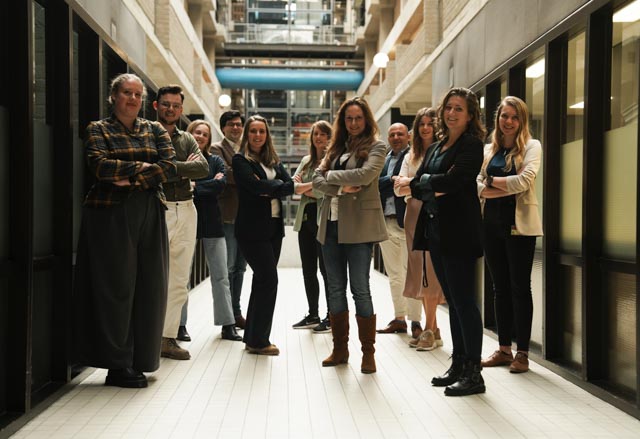Front-end first AI for care planning

Published on 09-09-2025
AI tools could help make care planning more efficient. But can we also develop those AI tools efficiently, so that we can afford to use them? In a project bridging industry R&D, education and internal quality improvement, David Neal and master Medical Informatics student Ellen Minkin demonstrated how “front-end-first” AI development might be the answer.
Prof. Folkert Asselbergs and his team of cardiology specialists from the Heart Centre of Amsterdam UMC want to reduce waiting times for their patients. More efficient care-planning processes could help patients see their doctor sooner. AI applications might help planners to acheive this.
Amsterdam-based company PersonalAIze has skills and experience in developing AI models. They could therefore be a valuable development partner for Amsterdam UMC. The AI-powered planning tool that Amsterdam UMC and PersonalAIze envisioned is called PoliPlanner.
But what should the AI in PoliPlanner be able to do, exactly?
Workflow redesign
Ellen Minkin, final year Medical Informatics master student, was tasked with investigating, together with clinicians, planners, and the model developers. Her internship was co-supervised by David Neal from ELLLA, Mark Hoogendoorn from PersonalAIze, with close support from the Heart Centre team.
From interviews, observations and reviewing scientific literature and internal documentation, Ellen was able to build up a detailed picture of current planning workflows–specific tasks and processes, like booking new patients, registering cancellations, etc.–and the possible functions of an AI tool.
This allowed Ellen to create a concrete and detailed list of what future users of PoliPlanner wanted and needed. Based on this clear specification for the tool, she could build an interactive prototype for how the user interface of the application might look and work. Testing this with the planners and clinicians revealed that this prototype was very easy to use, and was already very close to what users wanted.
More efficient model development
The real value of this project was that it saved time and money on AI model development. In the first instance, there was an idea that PoliPlanner would need to completely automate care planning. This would have been very complex, time-consuming and expensive.
But Ellen’s front-end-first research and design revealed that most of the value of PoliPlanner from the perspective of clinicians and planners, could be achieved for a small fraction of the investment in AI model development. This was because the tasks that were–from a technical perspective–hardest to automate, were not the tasks that currently caused planners the most frustrations or delays.
Next steps
PoliPlanner continues to be developed, in line with Ellen’s specifications. David is exploring more opportunities to support front-end-first AI development in Amsterdam UMC and other healthcare settings.

Let’s talk
We’re excited to collaborate on grant applications or support existing research projects. Send us an email now, or follow us and reach out via LinkedIn.
